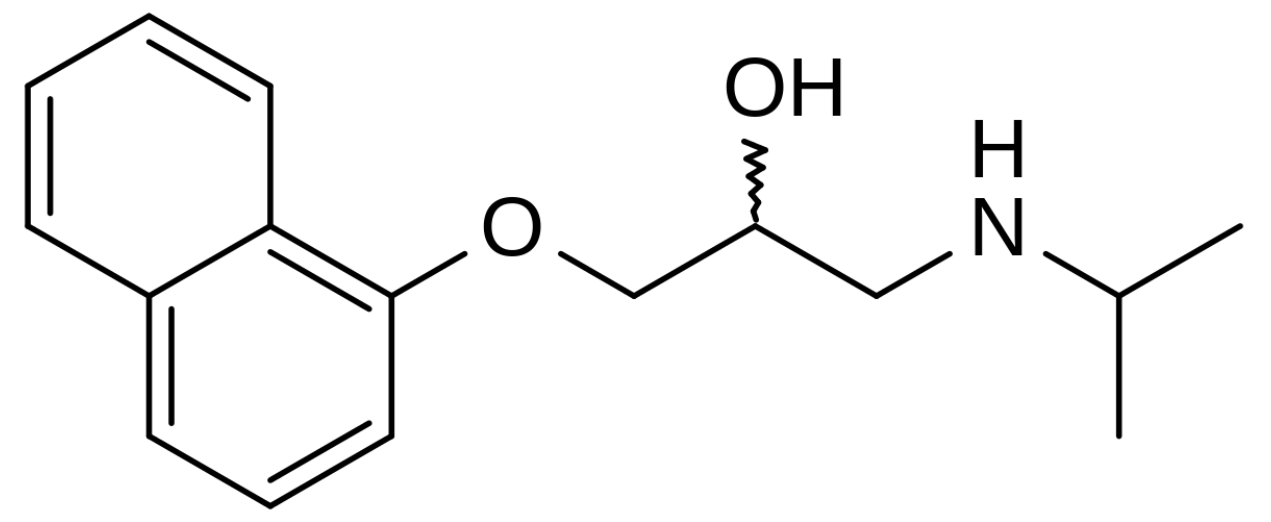Playlist
Show Playlist
Hide Playlist
Group 2: Beta Blockers – Antiarrhythmic Drugs
-
Slides Group 2 Beta Blockers Antiarrhythmic Drugs.pdf
-
Reference List Pharmacology.pdf
-
Download Lecture Overview
00:01 Let's move on to the class 2 drugs. So, these are beta blockers. 00:04 Now, all beta blockers have a very complex interaction with the membrane. 00:09 First of all, all beta blockers do have anti-ischemic effects. 00:13 They reduce the myocardial oxygen demand by reducing heart rate for example. 00:18 Some beta blockers also have membrane stabilizing effects at the phase 0 point of the action potential. 00:26 All of the beta blockers will also affect the slow current. So, there is going to be an action on repolarization as well. 00:34 And there is one beta blocker, it's sotalol, that has action potential prolongation, because in a way, it's acting like a class III antiarrhythmic. 00:45 Although sotalol is a beta blocker, I'm going to discuss it in the class III discussion. 00:52 So, in terms of these beta blockers, let's talk about the prototypical antiarrhythmic beta blocker, esmolol. 00:59 Now, esmolol is particularly useful because it can be given intravenously and it's quite fast acting and relatively short acting. 01:07 Esmolol acts selectively on β1-adrenergic receptors, primarily found in the heart. 01:13 This specificity is crucial because it allows esmolol to reduce heart rate and myocardial contractility without significantly affecting β2 receptors, which are predominant in the lungs and vascular smooth muscle. This property makes esmolol particularly beneficial for patients with respiratory conditions like asthma, where non-selective β-blockers could provoke bronchoconstriction. 01:37 The cardiac action potential is a sequence of voltage changes occurring in cardiac cells, responsible for the heart's rhythmic contractions. Esmolol acts on Phase 4 of the cardiac action potential, a phase associated primarily with pacemaker cells of the sinoatrial (SA) node. In this phase, Esmolol inhibits spontaneous depolarization, which is primarily driven by the 'funny current’ (I-f) and influenced by the autonomic nervous system. 02:07 By blocking β1-adrenergic receptors, esmolol reduces the effects of norepinephrine and epinephrine, thereby decelerating the heart rate. 02:17 By targeting these β1-adrenergic receptors, esmolol decreases the slope of spontaneous depolarization in the SA node's pacemaker cells. This action effectively lowers the heart rate (negative chronotropy) and can decrease the force of cardiac contractions (negative inotropy). 02:35 This is particularly beneficial in conditions where tachycardia (an abnormally high heart rate) is detrimental. 02:42 Another vital effect of esmolol is the slowing of electrical transmission through the atrioventricular (AV) node. 02:49 This is significant in controlling the heart rate, especially during atrial arrhythmias where rapid impulses from the atria need to be moderated before they reach the ventricles. 03:00 By slowing AV nodal conduction, Esmolol can prevent excessively rapid ventricular rates, which can be life-threatening. 03:09 Esmolol is particularly valued for its effectiveness in treating rapid atrial arrhythmias, such as atrial fibrillation or atrial flutter. 03:18 These conditions are characterized by rapid and irregular heartbeats originating from the atria. 03:24 By slowing the heart rate and reducing the force of heart muscle contractions, Esmolol helps restore a more controlled and efficient heart rhythm. 03:32 In summary, Esmolol's cardioselectivity, combined with its ability to modulate the cardiac action potential and slow AV nodal transmission, makes it an essential drug in the management of various cardiac conditions, particularly those involving undesirable rapid heart rates. 03:50 In terms of the ECG changes with these medications, you often will see a prolongation of the PR interval, which represents the conduction through the AV node being delayed. 04:02 We call that dromotropy. So, esmolol and other beta blockers are negative dromotropic agents. 04:09 The word "dromos" refers to the Greek god or the patron god of racing. 04:14 So, dromos means race or fast. So, if you have negative dromotropy, you have a slower speed of conduction.
About the Lecture
The lecture Group 2: Beta Blockers – Antiarrhythmic Drugs by Pravin Shukle, MD is from the course Cardiovascular Pharmacology.
Included Quiz Questions
What does the term "negative dromotropy" refer to in the context of beta-blockers like esmolol?
- A slowdown in the speed of electrical conduction through the AV node
- Increased speed of electrical conduction through the heart
- A decrease in the physical size of the heart's atria
- An increase in the rate of heartbeats per minute
- The ability of the heart to withstand high levels of physical stress
Which statement best describes esmolol?
- A beta-1 receptor blocker with rapid onset and short duration of action
- A beta-1 receptor blocker with rapid onset and long duration of action
- A beta-1 and alpha-1 receptor blocker with rapid onset and long duration of action
- A beta-1 receptor blocker with delayed onset and long duration of action
Customer reviews
5,0 of 5 stars
| 5 Stars |
|
5 |
| 4 Stars |
|
0 |
| 3 Stars |
|
0 |
| 2 Stars |
|
0 |
| 1 Star |
|
0 |




